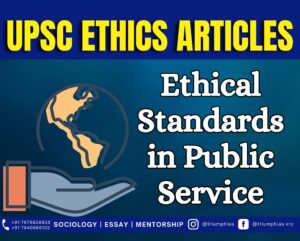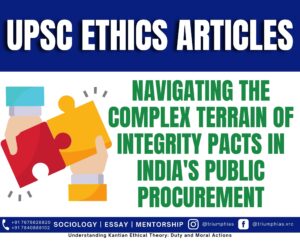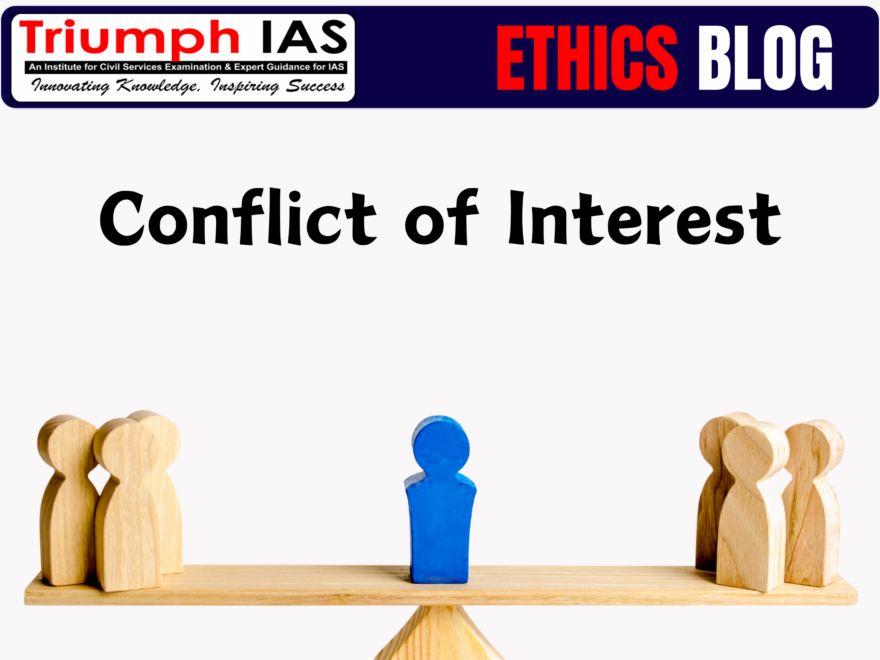Conflict of Interest (CoI)
[Relevant for Public Ethics, Integrity and Aptitude]

Conflict of Interest (CoI) We all in our day-to-day life face this situation where two (often contending interests) are there to be satisfied but each having its own “moral-cost” to be paid by the agent. Suppose after an evening jogging session you intend to satisfy your thirst and see a cold drink bottle you have that CoI; whether to go for that cold drink or resist yourself and stick to your health regimen by delaying your gratification.
Definition:
Michael McDonald – the American philosopher and thinker – defines the term “conflict of interest” as “a situation in which a person, such as a public official, an employee, or a professional, has a private or personal interest “sufficient to appear to influence” the objective exercise of his or her official duties.”
Based on McDonald, there are three key elements:
1) a private or personal interest—often (but not always) a financial interest; 2) official duty – quite literally the duty you have because you have a mandate owing to you holding a position in office or act in an official capacity; and
3) conflicts of interest interfering with professional responsibilities in a specific way, namely, by interfering with objective professional judgment.
McDonald further emphasizes that conflict of interest is an ethical issue.
Whenever the official lacks ethical standard there is potential risk for underlying conflict of interest.
The factors contributing to a conflict of interest can be considered as five main components.
- First, the individual factor which comprises of personal values, belief, attitudes and behaviour.
- Second, the economic factor which involves official’s incomes and indebtedness.
- Third, the social factor such as societal values, moral and ethical framework, position, patronage system and nepotism, and role model of top leaders and supervisors.
- Fourth, legal factor including rules and procedures: some pitfalls are outdated laws with legal loopholes, lack of rules of law and auditing system.
- Fifth, the environmental factors, such as organizational culture, expectations and traditional practices of government officials.
Related Blogs …
 |
 |
Follow us :



Find More Blogs…
| Compare and contrast Karl Marx’s and Max weber’s | Karl Marx- Historical Materialism |
| Position of Women In the Modern Indian Society | Sociology: Social system and pattern variables |



One comment